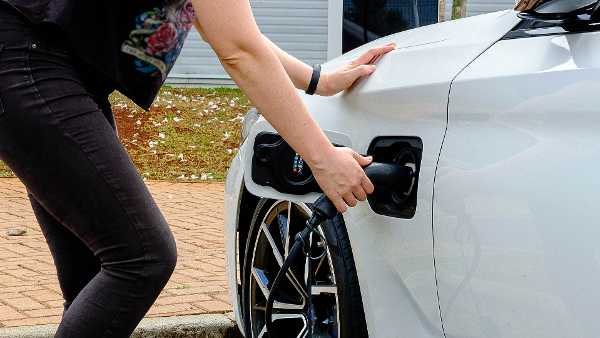How to start your own courier business
- Henk Herkink
- How to
- 20 August 2020
- Edited 23 June 2025
- 4 min
- Starting
As an independent courier, you choose your own route and decide how to deliver your parcels, groceries, or meals to your customer. But there are a lot of laws and regulations for the transport and logistics sector. Are you considering starting an independent courier or delivery business? Here are the rules.
What do you need to arrange when starting a business?
Answer the questions on Business.gov.nl and see the steps that are important in your situation.
This article is about transporting goods. For passenger transport, such as by taxi or bus, there are different rules. Which rules apply to your work as a courier depends on your vehicle, the items you transport, and the countries you drive to.
When are you a courier?
As an independent courier, you transport goods on behalf of someone else. You get paid for this. By law, you are then a professional goods transporter, even though self-employed people usually call themselves couriers or parcel delivery drivers.
Registering with the Netherlands Chamber of Commerce KVK
Anyone starting a business must register with the KVK. To do this, you make an appointment online at one of the KVK offices. Most couriers register as sole proprietorships, a business structure with one owner. Before making an appointment, check whether you meet the entrepreneurial criteria.
Rules for delivery with a delivery van
Most couriers drive a van or delivery car. An overview of the rules your van must comply with.
Driver’s licence
Check whether you have the correct driving licence:
Driver’s licence B
This driver’s licence allows you to drive a delivery van with a maximum weight of 3,500 kilograms, including cargo.
From 1 July 2025, a higher weight limit will apply to electric delivery vans because they have heavy batteries. Have you had your driving licence B for at least 2 years? Then you may drive an electric delivery van with a maximum weight of 4,250 kilograms, including cargo.
Driving with a trailer
If you are driving with a trailer behind your van, you may need a BE or B+ code 96 driving licence. This applies if the trailer weighs more than 750 kilograms or if your van and trailer together weigh more than 3,500 kilograms.
Euro licence
You will probably need a Euro licence from the National and International Road Transport Organisation (NIWO). The Euro licence is mandatory for:
- Delivery vans with a load capacity of more than 500 kilograms.
- Delivery vans with a load capacity of less than 500 kilograms, but with a maximum permissible mass of 2,500 kilograms or more.
The maximum permissible mass is the weight of your delivery van plus load, driver and passengers.
You can apply for the licence if you meet the conditions set by NIWO. For example, you must be registered with the KVK and have a professional diploma in commercial goods transport.
Adjusting the load capacity
If you always transport less than 500 kilograms, you can have the load capacity of your car adjusted downwards by the RDW (in Dutch). A permit is then no longer required.
Do you transport goods in a vehicle that weighs more than 3,500 kilograms? Then read the rules for truck drivers.
APK
The van must have been approved for the Algemene Periodieke (Periodic motor vehicle test, APK). You must be able to show the APK inspection certificate on request.
Registration certificate and registration
You must show your van’s registration (kentekenbewijs, in Dutch) on request. If this is recognised in the balance sheet of your sole proprietorship or partnership, your registration certificate will display your personal name rather than your business (in Dutch). If the vehicle is owned by a legal entity (for example, a private limited company) or a leasing company, the vehicle is registered in the name of the legal entity or leasing company.
Motor vehicle tax
Just like for a private car, you pay motor vehicle tax (MRB) for your delivery van. You can see how much that is for your van on the Tax Administration's website (in Dutch). Electric vehicles are eligible for a discount on MRB until 2029.
If you use your company vehicle for personal purposes for more than 500 kilometres per year, you will pay additional tax in your annual income tax return.
Environmental zones
Some cities or towns have environmental zones. There, requirements are imposed on vehicles that emit too many pollutants. These environmental zones make it more interesting to deliver parcels in inner cities and residential areas with an electric delivery van or cargo bike (cargo bike).
Zero-emission zones
From 2025, municipalities will be allowed to introduce zero-emission . Only vans and trucks that are zero-emission will be allowed in these areas.
You can find more (specific) laws and regulations on transport at .
Rules for bicycle and moped couriers
Do you use a moped or motorised bicycle for your courier work? Or a four-wheeled microcar? Then you need a moped licence (AM licence). Your vehicle may weigh a maximum of 350 kilograms. For electric vehicles, the weight of the battery does not count.
Additional rules for certain goods
Additional rules apply to certain goods. For example, you are not allowed to simply transport food (in Dutch), hazardous substances, fireworks, or medicines.
Find out whether there are any additional requirements for the goods you are transporting. You can check this with your client, for example.
Transport to a foreign country
If you are transporting goods to a country outside the European Union, you sometimes need a a CEMT license (in Dutch), or a transport (in Dutch) or driving permit. This differs per country. You can find the rules for the United Kingdom on the NIWO (in Dutch).
Driving abroad: cabotage
If, as a Dutch courier, you want to deliver goods between a starting point and an endpoint in another EU country, this is called . You may make a maximum of 3 consecutive cabotage trips within 7 days. After that, you must leave the EU country before you can take on new cabotage trips in that country.
Risks for couriers
Research what your risks are and try to limit them as much as possible. With general terms and conditions, for instance. If you belong to a trade association, you can use their terms and conditions.
There are also insurances for the risks you cannot bear yourself. Some insurances are compulsory, such as third-party insurance for your van. Other insurances you can take out voluntarily, such as disability insurance.
There is a website on road safety especially for meal delivery drivers: .
KVK Insurance Check
While some insurance policies are compulsory, others are simply practical and convenient. Which ones do you need? The KVK Insurance Check helps you choose your insurance products.
Practical issues
In addition to the above rules, starting your own business involves several other issues, such as:


